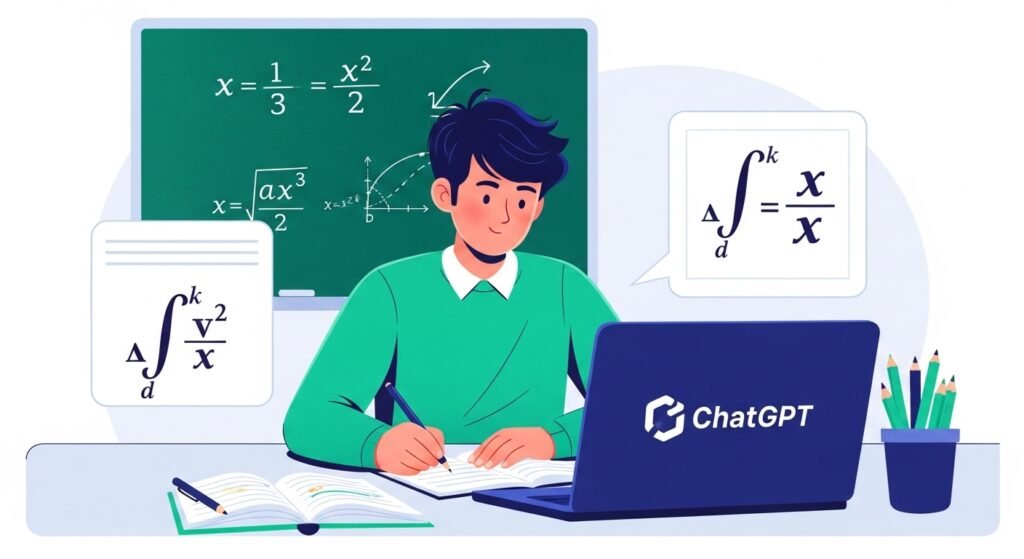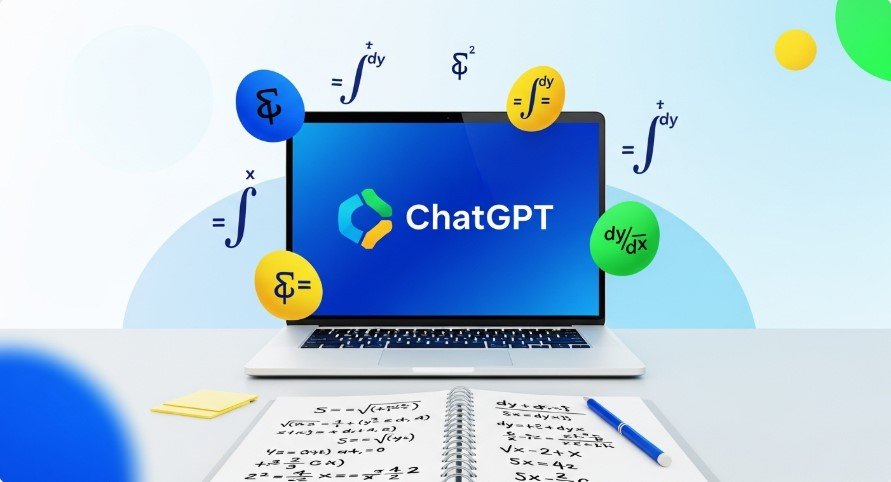Calculus can be tough. Many students wonder if AI tools like ChatGPT can help. ChatGPT, built by OpenAI, is known for answering questions and assisting with tasks. But can it tackle calculus? This post explores ChatGPT’s ability to solve calculus problems, its benefits, and its limits. We’ll also share tips to use it effectively and suggest better tools for accuracy. Our goal is to help students and educators understand how ChatGPT fits into calculus learning in 2025.

Can ChatGPT Solve Calculus Problems?
ChatGPT can handle basic calculus tasks. It solves simple derivatives, integrals, and limits. For example, it can differentiate ( f(x) = x^2 ) or integrate ( \int x \, dx ). A 2025 study in the Journal of Formative Design in Learning found ChatGPT performs well on middle school math and some high school calculus, like exponential functions. However, it struggles with advanced topics like multivariable calculus or complex proofs.
Math educator Jay Daigle tested ChatGPT for creating calculus test questions. It generated relevant problems, such as related rates or integration by parts, but its solutions were often wrong. For instance, it might miscalculate or use inconsistent notation, confusing learners. On AP Calculus BC tests, ChatGPT scored in the 43rd to 59th percentile, below average college students.
Key Points:
- Solves basic calculus (derivatives, integrals, limits).
- Struggles with advanced calculus reasoning.
- Generates practice problems but solutions may be incorrect.
Learn how ChatGPT compares to other AI tools in ChatGPT vs. Traditional Search Engines.
Strengths of ChatGPT for Calculus
ChatGPT shines in several areas, making it a helpful tool for calculus students and teachers.
Clear Explanations
ChatGPT explains calculus concepts in simple terms. For example, it can describe a derivative as the slope of a curve or use real-world examples like speed in physics. This helps beginners understand complex ideas.
Practice Problem Generation
It can create practice problems on topics like the chain rule or definite integrals. This lets students practice specific skills and test their knowledge.
Interactive Feedback
Students can submit answers to ChatGPT for feedback. It may point out errors and suggest fixes, supporting self-paced learning. A Medium article noted ChatGPT can recommend resources like YouTube tutorials or create flashcards for study.
Boosting Engagement
Research shows ChatGPT improves student attitudes toward calculus. A 2025 study found students felt more motivated when using it as a study tool. It makes learning feel interactive and less intimidating.
Limitations of ChatGPT in Calculus
ChatGPT has notable weaknesses that limit its reliability for calculus.
Frequent Errors
ChatGPT often makes mistakes in calculations. PC Guide tested it on ( 513 \times 71.378 / 9.3567 ), and it returned 3915.181 instead of 3913.44320113 due to decimal errors. These mistakes can mislead students.
Inconsistent Solutions
Its answers vary in quality. Jay Daigle found ChatGPT uses inconsistent notation, which can confuse learners. For complex problems, it may start correctly but falter in later steps.
Not a Calculator
Unlike calculators, ChatGPT relies on contextual learning, not precise math. It’s not designed for exact calculations, making it less reliable than tools like Wolfram Alpha.
Requires Verification
Students must check ChatGPT’s answers. A Mathematics Educators Stack Exchange post noted it excels at proofs but often makes plausible student-like errors in calculations, requiring critical evaluation.
Worried about AI detection in academic work? See Can Canvas Detect ChatGPT?.
How to Use ChatGPT Effectively for Calculus
To make ChatGPT work for you, follow these tips:
- Request Explanations: Ask for step-by-step explanations of concepts like the product rule or definite integrals.
- Generate Practice: Prompt it to create problems on specific topics, like ( \int \sin(x) \, dx ).
- Verify Answers: Use a calculator or tool like Wolfram Alpha to check solutions.
- Combine Resources: Pair ChatGPT with textbooks, Khan Academy, or our post on How to Use ChatGPT for UX Research Plan for structured learning.
- Ask for Feedback: Submit your solutions and ask ChatGPT to review them for errors.
Try Khan Academy for free calculus lessons to complement ChatGPT.
Alternatives to ChatGPT for Calculus
For better accuracy, consider these tools:
Wolfram Alpha
Wolfram Alpha solves calculus problems with precision. It’s available as a ChatGPT plugin for Plus users, boosting accuracy. Visit Wolfram Alpha.
Photomath
Photomath scans handwritten problems and provides step-by-step solutions. It’s great for checking ChatGPT’s work.
GPT-4 and Beyond
GPT-4, available to ChatGPT Plus users, improves on calculus tasks. It handles complex problems better than GPT-3.5.
Traditional Calculators
Graphing calculators like TI-84 or software like MATLAB ensure precise results for calculus calculations.
Compare AI tools for coding in Claude vs. ChatGPT for Coding.
FAQs
Can ChatGPT solve math word problems?
Yes, it can interpret and solve basic calculus word problems, but it may misinterpret context or make errors. Verify with tools like Photomath.
Is ChatGPT better than a calculator for calculus?
No, calculators are more accurate for computations. ChatGPT is better for explanations and practice.
Can ChatGPT help with calculus homework?
Yes, it can explain concepts and generate problems, but always double-check its answers.
Does ChatGPT understand calculus proofs?
It can outline proofs but often makes errors in complex reasoning. Use it as a starting point, not a final answer.
Conclusion
ChatGPT is a helpful tool for calculus, especially for explaining concepts, creating practice problems, and engaging students. However, its errors and inconsistencies mean it’s not a replacement for calculators or dedicated math tools. Use it as a study aid, verify its answers with Wolfram Alpha or Photomath, and combine it with resources like Khan Academy. As AI improves, tools like GPT-4 may offer even better support for calculus in 2025.
Try ChatGPT for your next calculus study session, but always double-check its work. Share your experience in the comments!
